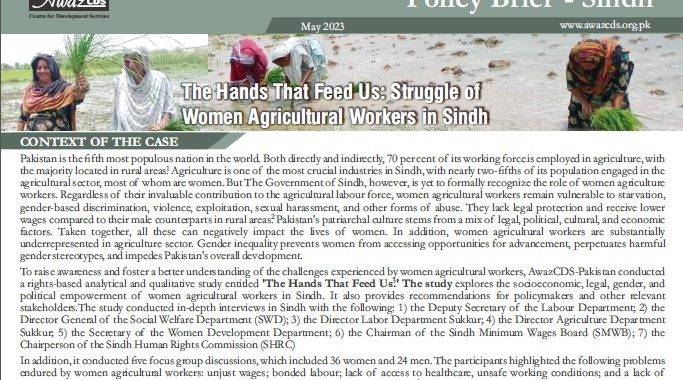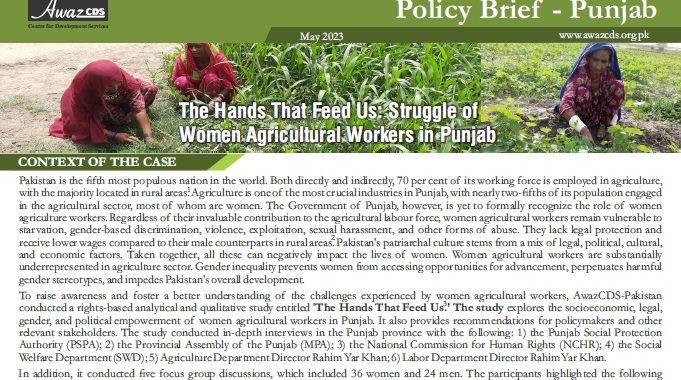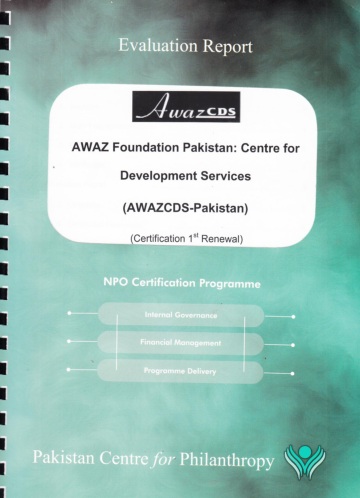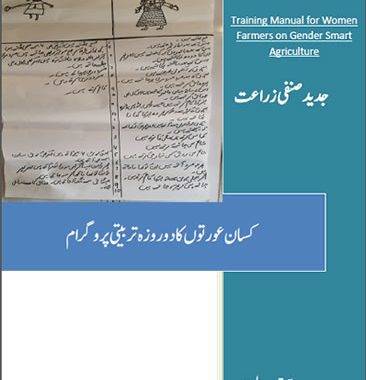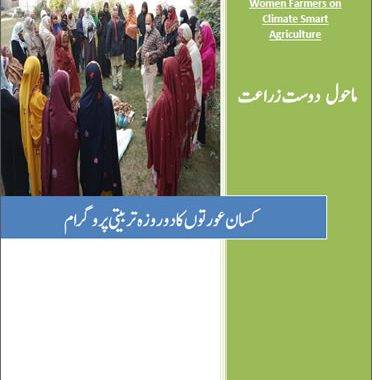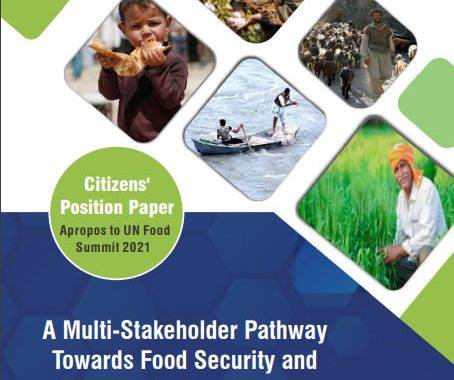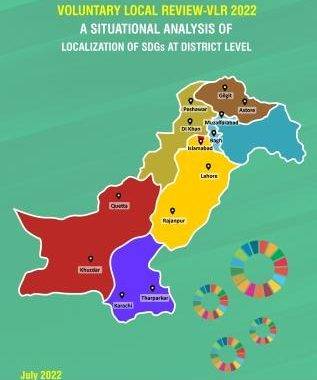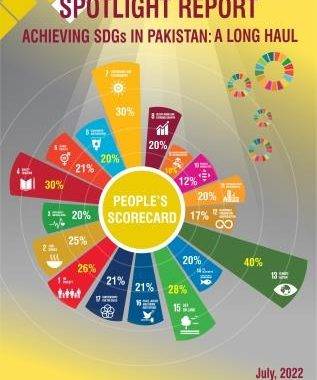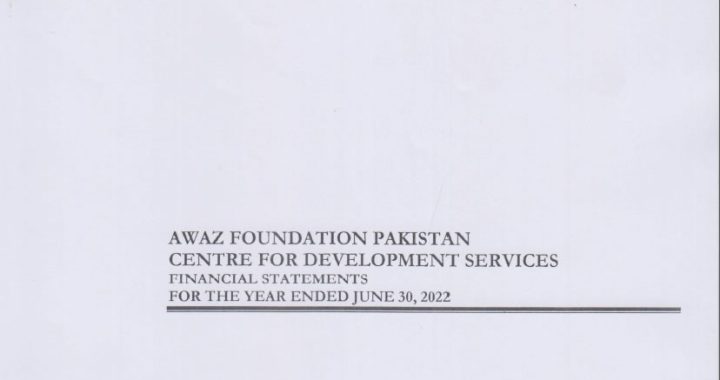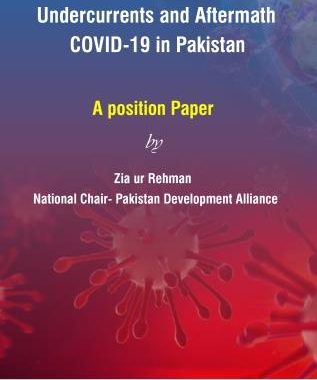Pakistan is the fifth most populous nation in the world. Both directly and indirectly, 70 per cent of its working force is employed in agriculture, with the majority located in rural areas. Agriculture is one of the most crucial industries in Sindh, with nearly two-fifths of its population engaged in the agricultural sector, most of whom are women. But The Government of Sindh, however, is yet to formally recognize the role of women agriculture workers. Regardless of their invaluable contribution to the agricultural labour force, women agricultural workers remain vulnerable to starvation, gender-based discrimination, violence, exploitation, sexual harassment, and other forms of abuse. They lack legal protection and receive lower wages compared to their male counterparts in rural areas. Pakistan’s patriarchal culture stems from a mix of legal, political, cultural, and economic factors. Taken together, all these can negatively impact the lives of women. In addition, women agricultural workers are substantially underrepresented in agriculture sector. Gender inequality prevents women from accessing opportunities for advancement, perpetuates harmful gender stereotypes, and impedes Pakistan’s overall development.
Author Archive: Ishfaq Khalil
Policy Brief on WAWs Rights-Punjab (English)
Pakistan is the fifth most populous nation in the world. Both directly and indirectly, 70 per cent of its working force is employed in agriculture, with the majority located in rural areas. Agriculture is one of the most crucial industries in Sindh, with nearly two-fifths of its population engaged in the agricultural sector, most of whom are women. But The Government of Sindh, however, is yet to formally recognize the role of women agriculture workers. Regardless of their invaluable contribution to the agricultural labour force, women agricultural workers remain vulnerable to starvation, gender-based discrimination, violence, exploitation, sexual harassment, and other forms of abuse. They lack legal protection and receive lower wages compared to their male counterparts in rural areas. Pakistan’s patriarchal culture stems from a mix of legal, political, cultural, and economic factors. Taken together, all these can negatively impact the lives of women. In addition, women agricultural workers are substantially underrepresented in agriculture sector. Gender inequality prevents women from accessing opportunities for advancement, perpetuates harmful gender stereotypes, and impedes Pakistan’s overall development.
Evaluation Report by PCP 2012
Certification is based on an objective, professional and critical evaluation. It is aimed at enhancing an organization’s credibility as nonprofit organization, increasing its organizational capacity to streamline and improve its system, helping in diversifying its resource base and facilitating in obtaining taz benefits from the Government of Pakistan (under section 2(36) read with section 61 and clauses 58(3) of the 2nd schedule of the Income Tax Ordinance 2001).
Citizens’ Position Paper
Pakistan is one of the largest food producing countries in the world yet we have severe challenges around availability of even staple food items , accessibility & necessary quantity of food for all and above than all quality food produce and its by-products. Nutritional aspects, utilisation behaviours and sustainable provision of adequate food for all are also un addressed yet. More than 64% population lives in rural areas of Pakistan and around 90% of them are directly engaged with agriculture sector, 43% work in agricultural fields as informal labourer to make their livings. Agriculture, livestock and fisheries are largely known as food assurance sectors in every country and so as in Pakistan however these sectors are highly un-regulated and under-developed due to lack of research and poor extension services for farmers, livestock entrepreneurs and fisherfolks.
Voluntary Local Review-2022
The Voluntary Local Review (VLR) is an analysis of the Sustainable Development Goals (SDGs) for a specific local context. It is a very important monitoring tool for their implementation at city or regional level. The process of SDGs localization that starts with the Voluntary Local Review allows local authorities to identify their own priorities and territorial specificities. When it combines a careful analysis of indicators with a participatory process that involves citizen and local stakeholders and a coherence analysis of existing policies as a basis for planning and policy design it also becomes a strategic planning tool. “Localization” is the process of taking into account national, subnational and local contexts in the achievement of SDGs, from the setting of goals and targets, to determining the means of implementation and using indicators to measure and monitor progress.”
CSOs-Spotlight-Report-2022
Spotlight Report is an alternative and civil society led report on Sustainable Development Goals, the idea was part of regular interventions of Pakistan Development Alliance around national, regional and global advocacy opportunities including High Level Political Forum (HLPF). Several countries including Pakistan followed their lead and developed parallel reports to official Voluntary National Review (VNR) through a participative process by collaborating with Civil Society Organizations (CSOs) and Non- Governmental Organizations (NGOs).
The People Score Card (PSC) is a tool for independent assessment of Governments’ progress and performance towards achievement of their socio- economic and political commitments through inclusion of people’s voices. The PSC gathers information from the people and depicting real, on ground situation with regard to performance and progress of Pakistan on SDGs. PSC results are inculcated in the CSOs led spotlight report presented at the United Nation’s High Level Political Forum (HLPF) in parallel to official VNRs by the Governments in July 2022.
Country Position Paper -2022
On 31 December 2019, the World Health Organization (WHO) office in China received a report of 29 pneumonia cases of unknown etiology in Wuhan city in Hubei province, central China. The virus was quickly identified as a novel beta-coronavirus and the genetic sequence was shared on 12 January 2020. The infection is now officially termed COVID-19 and the virus SARS-CoV-2. Coronavirus disease (COVID-19) is an infectious disease caused by a newly discovered coronavirus. Most people infected with the COVID-19 virus will experience mild to moderate respiratory illness and recover without requiring special treatment. Older people, pregnant women, people living with disabilities and those with underlying medical problems like cardiovascular disease, diabetes, chronic respiratory disease, and cancer are more likely to develop serious illness. According to Centre for Disease control and prevention “Symptoms such as Fever, Cough, and Shortness of breath may appear 2-14 days after exposure (based on the incubation period of MERS-CoV viruses).
In the meanwhile, World Health Organization (WHO) urged all countries to prepare for the potential arrival of COVID-19 by readying emergency response systems; increasing capacity to detect and care for patients; ensuring hospitals have the space, supplies and necessary personnel; and developing life-saving medical interventions. WHO had declared Coronavirus Disease 2019 (COVID-19) a Pandemic on March 11, 2020. Furthermore, the Government of Pakistan had declared a National Health Emergency of Public Concern in regard to the same on 13th of March 2020.
